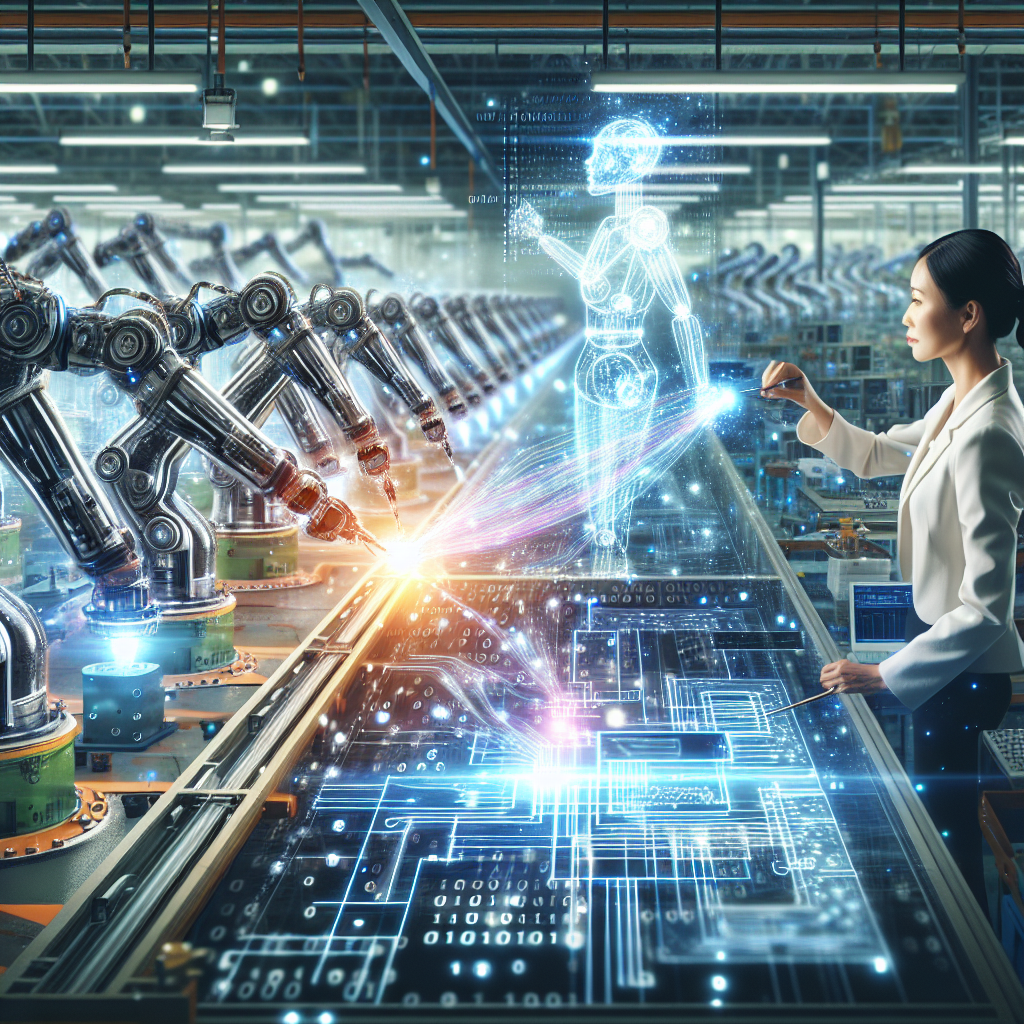AI, or artificial intelligence, has been making waves in various industries, revolutionizing the way businesses operate. In the manufacturing sector, AI is playing a crucial role in streamlining processes, improving efficiency, and driving innovation. From predictive maintenance to quality control, AI is transforming the manufacturing landscape in ways that were previously unimaginable. In this article, we will explore the benefits of implementing AI in manufacturing and how it is reshaping the future of the industry.
1. Increased Efficiency
One of the key benefits of implementing AI in manufacturing is the significant increase in efficiency. AI-powered systems can analyze vast amounts of data in real-time, allowing manufacturers to optimize their production processes and make informed decisions quickly. For example, AI can help manufacturers predict equipment failures before they occur, enabling preventive maintenance to be carried out proactively. This not only reduces downtime but also extends the lifespan of machinery, ultimately saving time and money.
2. Improved Quality Control
Quality control is a critical aspect of manufacturing, as even minor defects can lead to costly recalls and damage to a company’s reputation. AI can help manufacturers enhance their quality control processes by detecting defects in real-time and identifying root causes. By utilizing machine learning algorithms, AI systems can learn from past data and improve their accuracy over time, resulting in higher-quality products and reduced waste.
3. Enhanced Supply Chain Management
AI is also transforming supply chain management in manufacturing by providing real-time visibility into inventory levels, demand forecasting, and supplier performance. By analyzing historical data and predicting future trends, AI can help manufacturers optimize their supply chains, reduce lead times, and minimize stockouts. This not only improves operational efficiency but also reduces costs and enhances customer satisfaction.
4. Increased Flexibility and Customization
Another benefit of implementing AI in manufacturing is the ability to increase flexibility and customization. AI-powered systems can adapt to changing production requirements and customer demands, allowing manufacturers to produce a wider variety of products in smaller batch sizes. This level of flexibility enables manufacturers to respond quickly to market trends and customer preferences, ultimately driving competitiveness and growth.
5. Safety and Risk Management
AI can also improve safety and risk management in manufacturing by identifying potential hazards, analyzing safety data, and implementing preventive measures. By utilizing AI-powered predictive analytics, manufacturers can proactively mitigate risks and prevent accidents before they occur. This not only protects workers’ safety but also minimizes downtime and costly lawsuits.
6. Innovation and Product Development
AI is fueling innovation in manufacturing by enabling companies to develop new products and services faster and more efficiently. By leveraging AI-powered design tools and simulation software, manufacturers can test and iterate on product prototypes in virtual environments, reducing time-to-market and minimizing costs. This level of innovation is essential for staying ahead of the competition and meeting the ever-changing needs of customers.
7. Cost Savings
Ultimately, implementing AI in manufacturing can lead to significant cost savings for companies. By optimizing production processes, reducing downtime, improving quality control, and enhancing supply chain management, manufacturers can lower operational costs and increase profitability. Additionally, AI can help manufacturers identify inefficiencies and areas for improvement, enabling them to make data-driven decisions that maximize efficiency and reduce waste.
In conclusion, the benefits of implementing AI in manufacturing are vast and far-reaching. From increased efficiency and improved quality control to enhanced supply chain management and flexibility, AI is transforming the industry in ways that were previously unimaginable. By embracing AI technologies and leveraging their capabilities, manufacturers can stay ahead of the competition, drive innovation, and achieve sustainable growth in an increasingly competitive marketplace.
FAQs:
1. What types of AI technologies are commonly used in manufacturing?
Common AI technologies used in manufacturing include machine learning, predictive analytics, robotic process automation, computer vision, and natural language processing. These technologies can be applied to various aspects of manufacturing, such as production planning, quality control, predictive maintenance, and supply chain management.
2. How can AI improve quality control in manufacturing?
AI can improve quality control in manufacturing by detecting defects in real-time, analyzing root causes, and providing insights for process improvement. By utilizing machine learning algorithms, AI systems can learn from past data and continuously improve their accuracy over time, resulting in higher-quality products and reduced waste.
3. What are the key benefits of implementing AI in supply chain management?
The key benefits of implementing AI in supply chain management include real-time visibility into inventory levels, demand forecasting, and supplier performance. By analyzing historical data and predicting future trends, AI can help manufacturers optimize their supply chains, reduce lead times, and minimize stockouts, ultimately improving operational efficiency and customer satisfaction.
4. How can AI enhance safety and risk management in manufacturing?
AI can enhance safety and risk management in manufacturing by identifying potential hazards, analyzing safety data, and implementing preventive measures. By utilizing AI-powered predictive analytics, manufacturers can proactively mitigate risks and prevent accidents before they occur, ultimately protecting workers’ safety and minimizing downtime.
5. What are the cost savings associated with implementing AI in manufacturing?
Implementing AI in manufacturing can lead to significant cost savings by optimizing production processes, reducing downtime, improving quality control, and enhancing supply chain management. By identifying inefficiencies and areas for improvement, AI enables manufacturers to make data-driven decisions that maximize efficiency and reduce waste, ultimately increasing profitability.

